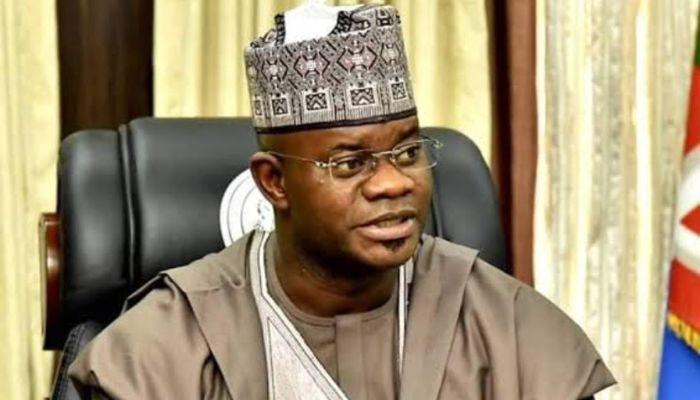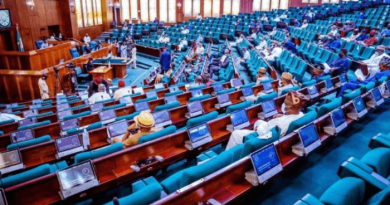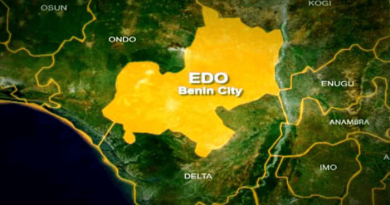Court adjourns decision on Bello’s foreign travel request to July 17
A High Court of the Federal Capital Territory in Maitama, Abuja, has postponed its ruling on a request by Yahaya Bello, former Kogi State Governor, who is asking for the release of his international passport so he can seek medical attention overseas.
The court has fixed July 17, 2025, for the ruling.
Justice Maryann Anenih scheduled the next hearing after listening to submissions from both sides involved in the case.
The Economic and Financial Crimes Commission (EFCC) is prosecuting Bello and two co-defendants over claims that they diverted ₦110.4 billion in public funds while he served as the governor of Kogi State.
Kemi Pinheiro, SAN, EFCC , while Bello’s defense is being handled by Joseph Daudu, also a Senior Advocate of Nigeria.
At the continued hearing, Daudu informed the court that a motion, dated June 19 and filed the following day, had been brought before the court, requesting the release of Bello’s passport. The passport had been submitted to the court registrar as part of the bail requirements.
Read also: Senate to receive court judgment on Natasha Akpoti case Tuesday
Daudu explained that the motion was backed by a 22-paragraph affidavit personally sworn to by Bello. Supporting documents, including a medical report and a letter confirming an appointment with a doctor overseas, were also attached.
He argued that the request was grounded in 13 points of law and reminded the court that in a December 2024 decision, it had acknowledged Bello’s right to seek permission to travel by filing a formal application.
Daudu emphasized that the court’s previous ruling did not impose a travel ban nor outline specific restrictions regarding trips abroad.
He also referenced a Certified True Copy of that ruling submitted as Exhibit C asserting that the current application was consistent with the court’s earlier stance. He further pointed out that Bello had been fully compliant with all court appearances, was not a flight risk, and had already notified his sureties about his intended travel.
On the other hand, Chukwudi Enyebili (SAN), representing the prosecution, raised objections to the defence’s request.
During the court session, Enyebili adopted the EFCC’s 45-paragraph counter-affidavit sworn by Abubakar Wara and criticized the defence’s application, describing it as a clear misuse of the judicial process.
He pointed out that Bello had already submitted a similar request before the Federal High Court, which is still pending a decision later this month.
Enyebili argued that asking two different courts for the same relief at the same time not only disrespects the judiciary but also creates the possibility of contradictory rulings.
“The passport in question isn’t even in this court’s possession,” Enyebili said firmly.
He stressed that the Federal High Court had issued its order before the present proceedings began and urged the current court not to make any decisions about a document it does not hold.
Enyebili also cast doubt on the legitimacy of the medical documents provided by the defence. He noted that the doctor who signed the medical report was not the same one who originally issued the appointment, and that the report failed to include the physician’s qualifications. He dismissed the report entirely, calling it “a worthless piece of paper.”
On the question of medical care, the prosecution argued that Bello should receive treatment in Kogi State, where he had inaugurated a state-of-the-art Reference Hospital intended to reduce reliance on foreign medical services.
Read also: Court backs NIBSS right to manage BVN database
Referencing the global scope of the case which involves charges of money laundering—Enyebili warned that letting Bello travel abroad could compromise the integrity of the trial.
He further reminded the court that Interpol had previously placed Bello on a watchlist, although the defence countered that this happened before his court appearance and was no longer relevant.
In response, Daudu insisted that Bello had complied fully with all bail conditions, the sureties were properly briefed, and that both the Federal High Court and the FCT High Court, being courts of equal status, are independently empowered to hear such applications without overstepping legal boundaries.





